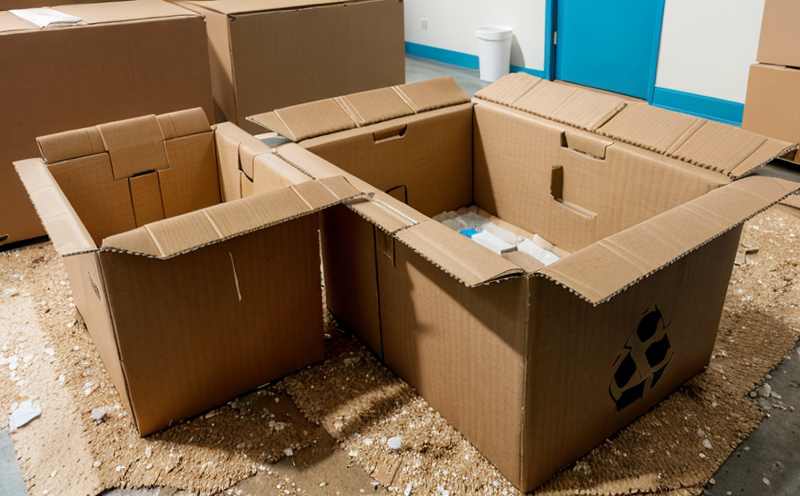EN 643 Newspaper Waste Paper Category
The EN 643 standard is a European Norm that provides specific requirements for newspaper waste paper intended for recycling. This category is crucial in ensuring the quality and environmental benefits of recycled materials used in various sectors, including packaging, building materials, and consumer goods.
Newspaper waste paper contains a mix of fibers, ink residues, adhesives, and other contaminants that need to be effectively managed during recycling processes. Compliance with EN 643 ensures that the recovered fibers are suitable for high-quality products while minimizing contamination levels. This standard is particularly important in sectors such as packaging, printing, and publishing.
The primary objective of this service is to evaluate the suitability of newspaper waste paper for recycling according to the strict criteria outlined in EN 643. Our laboratory employs advanced analytical techniques and state-of-the-art equipment to ensure precise results that meet international standards. The testing process involves several critical steps:
- Sampling: Representative samples are collected from various sources of newspaper waste.
- Preparation: Samples undergo thorough preparation, including washing, sieving, and drying to remove impurities.
- Analysis: Key parameters such as fiber length, dirt content, and ash content are measured using precise instruments like scanning electron microscopes (SEM) and Fourier-transform infrared spectroscopy (FTIR).
- Evaluation: Based on the analysis results, samples are classified into different categories based on their quality and suitability for recycling.
This service is essential for companies involved in waste management, paper mills, and recycling facilities. By ensuring compliance with EN 643, we help our clients meet regulatory requirements, improve product quality, and enhance the environmental sustainability of their operations.
Our expertise in this area allows us to provide accurate and reliable testing services that are aligned with international standards. This ensures that our clients can confidently use recycled newspaper waste paper in their products without compromising on quality or performance.
Scope and Methodology
The scope of EN 643 Newspaper Waste Paper Category includes the evaluation of various parameters to ensure that the recycled material meets specific requirements for use in secondary paper production. The methodology involves a series of tests designed to assess key characteristics such as:
- Fiber length distribution
- Dirt content and contamination levels
- Paper strength properties (tensile, burst, and tear)
- Particle size analysis
- Optical brightening agent content
The tests are conducted using advanced analytical instruments such as laser diffraction particle sizing systems, tensiometers for measuring paper strength, and Fourier-transform infrared spectrometers for detecting contaminants. Each parameter is analyzed meticulously to ensure that the recycled material meets stringent quality criteria.
Our laboratory follows a rigorous testing protocol that includes sample preparation, data collection, and interpretation of results. This ensures that each test is conducted under controlled conditions, yielding accurate and reproducible outcomes. The results are then reported in accordance with EN 643 standards, providing clear guidance on the suitability of the recycled material for specific applications.
The methodology employed by our laboratory guarantees consistency and reliability in testing, enabling clients to make informed decisions about their waste management practices and product development strategies. By adhering strictly to EN 643, we ensure that our services are aligned with international standards and best practices in the recycling industry.
Quality and Reliability Assurance
The quality and reliability of testing results are paramount in ensuring the success of any waste management or recycling operation. Our laboratory is committed to maintaining high standards of accuracy, precision, and consistency in all our tests. We achieve this through a combination of advanced analytical techniques, state-of-the-art equipment, and strict adherence to international standards.
We employ highly skilled technicians who are trained specifically in the use of our testing equipment and procedures. This ensures that every test is conducted with utmost care and attention to detail. Our laboratory is also accredited by recognized bodies such as ISO 17025, ensuring that our results are widely accepted and trusted.
In addition to rigorous internal quality control measures, we regularly participate in proficiency testing programs organized by reputable organizations. These programs provide an independent assessment of the accuracy and reliability of our test results. By consistently meeting or exceeding the performance criteria set by these programs, we demonstrate our commitment to excellence.
Our clients can rest assured that they are receiving reliable and accurate data from a laboratory that adheres strictly to international standards. This not only enhances their reputation but also helps them achieve better outcomes in terms of waste management and recycling practices.
Competitive Advantage and Market Impact
- Informed Decision-Making: By providing accurate and reliable test results, we enable clients to make informed decisions about their waste management strategies. This leads to more efficient use of resources and reduced operational costs.
- Compliance with Regulations: Our testing services help ensure that clients are compliant with relevant environmental regulations and standards, thereby reducing the risk of legal penalties and reputational damage.
- Innovation in Product Development: Accurate test data facilitates innovation in product design and development, leading to the creation of higher-quality recycled products. This enhances marketability and competitiveness.
- Sustainable Operations: By promoting sustainable waste management practices, our services contribute to a more environmentally friendly industry, which is increasingly becoming a key differentiator in the marketplace.
- Enhanced Reputation: Reliable test results enhance the reputation of clients, making them attractive partners for other businesses and stakeholders. This can lead to increased market share and customer loyalty.





